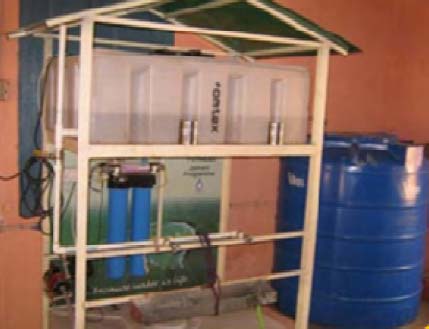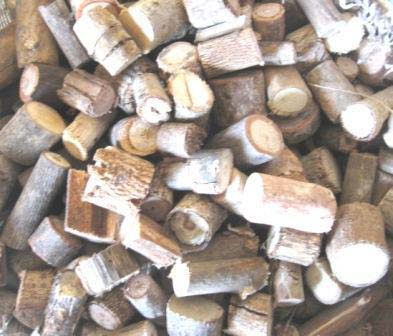/topics/public-infrastructure-and-services
Public Infrastructure and Services
Clear the air on Sindhol - WIO urges Government of Odisha
Posted on 17 Sep, 2011 01:47 PM- Is the government really serious about the Project? Water Initiatives Odisha(WIO) apprehends this to be a political game rather than a hydro power project, at least for now.
- We urge upon the government to first clear the air on the project design and other related issues before moving any further.
- The project is uncalled for without making a comprehensive analysis of water and energy scenario of the state; and if it displaces people and submerges agriculture land and forests
Disaster management in India – A report by Ministry of Home Affairs
Posted on 09 Sep, 2011 05:28 PMThe perception about disaster and its management has undergone a change following the enactment of the Disaster Management Act, 2005. The definition of disaster is now all encompassing, which includes not only the events emanating from natural and man-made causes, but even those events which are caused by accident or negligence.
Decentralized wastewater management – An overview of a community initiatives in New Delhi - Vigyan Vijay Foundation
Posted on 05 Sep, 2011 11:40 AMThis paper by Ajit Seshadri, Vigyan Vijay Foundation highlights the poor sanitation situation in India and argues that centralized approaches to wastewater treatment have had limited success and there is a need to make wastwater treatment people centric and effective through the use of decentralized systems such as DEWATS (Decentralized Wastewater Treatment Systems). DEWATS are locally organized and people driven systems that typically comprise a settler, anaerobic baffled tanks, filter beds of gravel and sand, and an open pond. The open pond or the polishing tank recreates a living environment for the wastewater to clean itself, naturally.
Assessment of Jalamani programme on stand alone water purification systems in rural India - A report by Centre for Media Studies
Posted on 03 Sep, 2011 04:50 PM This report by the Centre for Media Studies, New Delhi presents an assessment of the Jalamani programme of the Department of Drinking Water Supply, Government of India. The centrally sponsored programme commenced in 2008-09 aimed at installing simple Stand Alone Water Purification Systems (SAWPS) in rural schools to enable school children to have access to safe and clean water. The focus was on tackling bacteriological contamination and turbidity in ongoing rural drinking water supply programme.
This report by the Centre for Media Studies, New Delhi presents an assessment of the Jalamani programme of the Department of Drinking Water Supply, Government of India. The centrally sponsored programme commenced in 2008-09 aimed at installing simple Stand Alone Water Purification Systems (SAWPS) in rural schools to enable school children to have access to safe and clean water. The focus was on tackling bacteriological contamination and turbidity in ongoing rural drinking water supply programme.
The assessment study used both qualitative and quantitative techniques such as focus group discussions and in-depth interviews besides structured questionnaire for a variety of stakeholders and research questions. Another important aspect of the quantitative tools was testing of the raw and treated water samples. The study was undertaken in 320 schools spread across 20 districts and six states.
Integrated approach to solid waste management in Pune city – A working paper in MPRA
Posted on 31 Aug, 2011 07:02 PMSolid waste is increasing in the city due to growth of population, urbanization, higher per capita income and standard of living, changing lifestyle and food habits.
The first section of the paper explains about the structure of the solid waste in the city. The solid waste according to its constituents is presented in the second section. The third section of the paper explains about the regression result. The last section deals with the policy implication and conclusion.
Social equity and integrated water resources management – A background paper by Global Water Partnership
Posted on 31 Aug, 2011 04:10 PMIt provides an analytical framework that policy makers and water professionals can use to bring greater clarity to the issue of social equity in their local context.
Restructuring of the Central Water Commission – Ministry of Water Resources invites comments on its proposal till September 30, 2011
Posted on 25 Aug, 2011 12:24 PM
The restructuring is being proposed primarily to adopt river basins as the fundamental block for integrated planning, development and management of water resources in the country.
Biomass for sustainable development - Lessons for decentralized energy delivery in India – A report by World Bank
Posted on 22 Aug, 2011 07:55 PM It presents a summary of recommendations for enhancing the effectiveness of energy service delivery through a decentralized program, which currently finds a critical place in the Government‘s energy policies and electrification targets.
It presents a summary of recommendations for enhancing the effectiveness of energy service delivery through a decentralized program, which currently finds a critical place in the Government‘s energy policies and electrification targets.
The pilot phase of the Village Energy Security Programme has shown several lessons and the need for improvements.
Draft of Land Acquisition and Resettlement & Rehabilitation Bill, 2011 in public domain - Comments invited by Ministry of Rural Development till 31st August, 2011
Posted on 15 Aug, 2011 05:35 PMGuest post by: Amita Bhaduri
The drafting of a new legislation on these issues was taken up by a Group of Ministers in May 2007 and this is the second draft bill presented by the UPA Government.
The challenges of ecological sanitation in coastal south India - A case study of Kovalam town - South Chennai (Tamil Nadu) - A presentation
Posted on 11 Aug, 2011 05:48 PMThis presentation by Sekhar Raghavan, Director, Rain Centre, Chennai, India highlights the experiences and the challenges faced by Rain Centre in introducing ecological sanitation in the coastal town of Kovalam near Chennai, Tamil Nadu, India along with Coastal and Rural development Trust (CRDT), a small non profit centre based in Kovalam .
The coastal town of Kovalam was selected as a case because of its peculiar situation with its location in a fast developing peri-urban area in proximity to Chennai city characterised by good groundwater situation, adequate land and housing facilities, but with a glaring and urgent need and demand for toilets.





